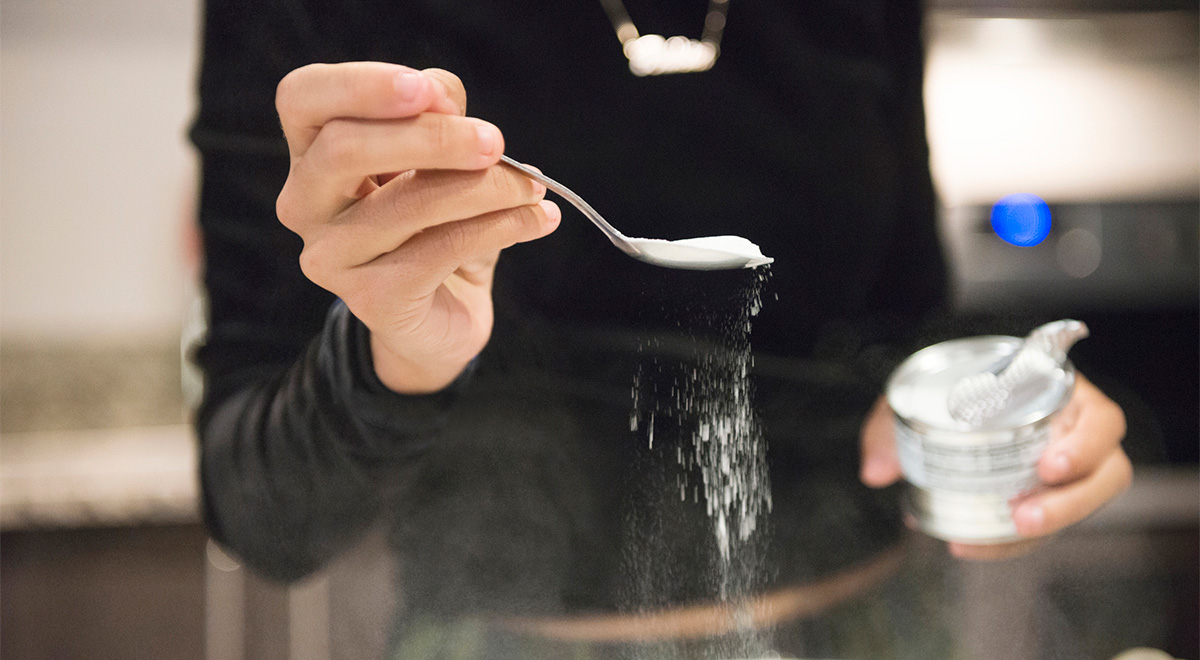There is a possibility that people suffering from autoimmune diseases such as rheumatoid arthritis, lupus, irritable bowel disease, and other similar conditions could find relief simply by taking a daily dose of sodium bicarbonate – more commonly known as baking soda – once a day. But don’t start spooning the contents of that little orange box into your glass of water just yet. The research is still in its early stages, and there is much yet to be learned.
The study, carried out at the Medical College of Georgia at Augusta University, was published last month in The Journal of Immunology. Researchers discovered that healthy human and rodent subjects who drank water laced with baking soda had a significantly lower chance of developing rheumatoid arthritis and lupus. The key to the puzzle is the spleen, which plays a significant role in the body’s defenses.
Medical science has identified 80 different autoimmune diseases, which afflict approximately 24 million people in the U.S., most of whom are women. Although symptoms vary, they are generally characterized by chronic fatigue and low-grade fever. These symptoms can come and go and usually appear during adulthood.
While the causes of autoimmune diseases are still a mystery, some of these disorders appear to be genetic, while others are brought on by infections or something in the environment. There are no reliable cures for autoimmune disease, although patients may experience relief of their symptoms through the use of nonsteroidal anti-inflammatory drugs (NSAIDs, such as aspirin and ibuprofen) or immunosuppressants.
The spleen acts as a type of filtering mechanism for the blood, much like the kidneys. It also contains a number of different white blood cells, or macrophages, which attack foreign or damaged cells and consume the remains. Macrophages are literally the “first responders” of the immune system, which are dispatched by the spleen to the site of an infection. Autoimmune disorders are like “false alarms,” causing macrophages to attack otherwise healthy cells.
In the present study, test subjects were given a solution of water and sodium bicarbonate over a 14-day period. This, of course, is highly alkaline. It triggers a response from the stomach, which increases the production of acid in preparation for the digestive process. In essence, the baking soda “tricks” the stomach into “thinking” that food is on the way. This, in turn, signals the cells of the mesothelium, the lining surrounding internal organs which also function as bodily defenses. According to Dr. Paul O’Connor, lead author of the study, the mesothelial cells pass on the message to the spleen, telling it to “stand down,” informing it that there is no pathogenic invader.
Unlike immunosuppressant drugs, baking soda does not disable the immune system. O’Connor says, “You are not really turning anything off or on, you are just pushing it towards one side by giving an anti-inflammatory stimulus. It’s potentially a safe way to treat inflammatory disease.” However, he warns that the research is all preliminary. “It could have potential, but there’s no data behind it…whether or not it can have a significant effect we don’t know.” Warning that people should not simply start downing H2O and sodium bicarbonate cocktails, he adds, “I certainly wouldn’t advise people doing this at home.”

